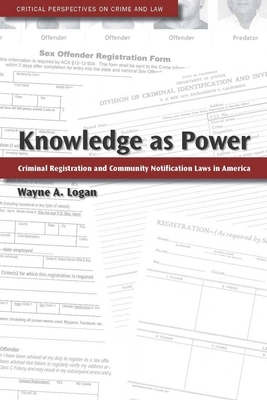 wesen required all to register and subsequently made the round-up of Jews easier for the Nazis," writes Caryl Lynn Segal, (Retired) Department of Criminology and Criminal Justice, University of Texas at Arlington, in a review of Knowledge as Power: Criminal Registration and Community Notification Laws in America (2009) by Wayne A. Logan in the Law and Politics Book Review. "Dating back to the 1500s, ecclesiastics in Finland and Sweden coveted population data. By the 17th century, both England and Prussia recognized the importance of gathering the information. As the title suggests, information is power."
wesen required all to register and subsequently made the round-up of Jews easier for the Nazis," writes Caryl Lynn Segal, (Retired) Department of Criminology and Criminal Justice, University of Texas at Arlington, in a review of Knowledge as Power: Criminal Registration and Community Notification Laws in America (2009) by Wayne A. Logan in the Law and Politics Book Review. "Dating back to the 1500s, ecclesiastics in Finland and Sweden coveted population data. By the 17th century, both England and Prussia recognized the importance of gathering the information. As the title suggests, information is power."Segal finds Logan's book "outstanding." The author
analyzes the history and current impetus underlying the proliferation of registration lists. Although considered a 21st century innovation, in the early 1930s Los Angeles, reacting to the reported arrival of gangsters, enacted the first known registration statutes.
Public panics, supplemented by a claimed community knowledge entitlement, emerged following various media accounts of sexual crimes. The panics fostered legislation and required registration lists including more than 3.3 million names (p.150) according to 2006 data.
Continue reading here.